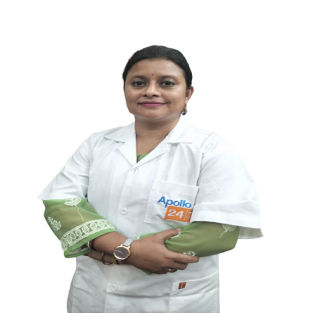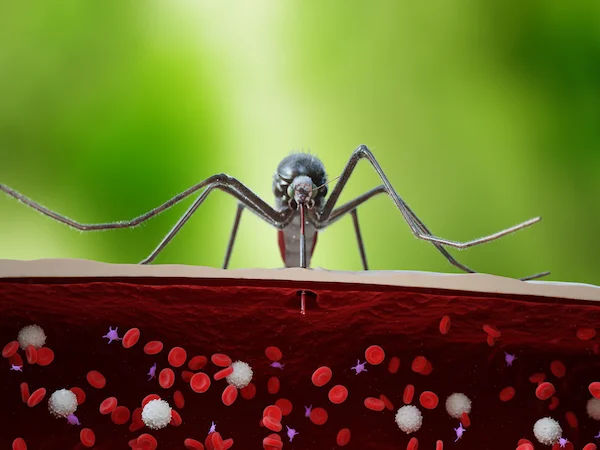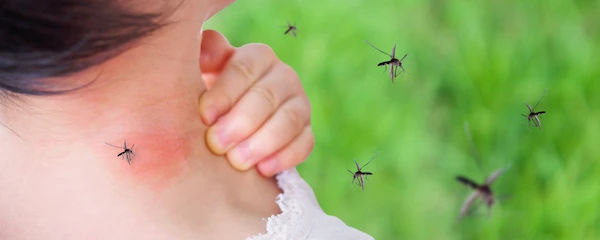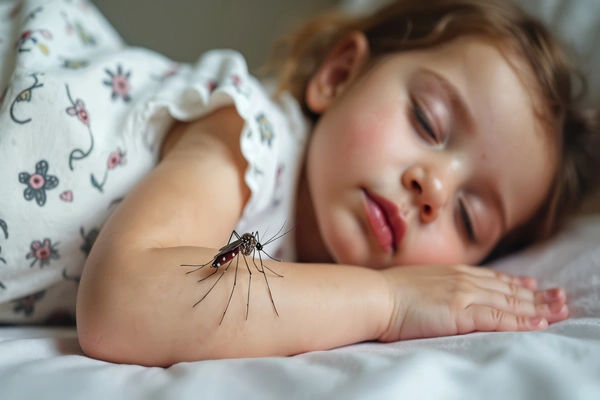Malaria Diet Guide Best Foods to Eat and Avoid During Recovery
Practical malaria diet tips: best foods for malaria recovery, what to avoid, hydration, and meal ideas—backed by WHO, CDC, and Mayo Clinic.


Introduction
Recovering from malaria takes more than medicine—it also takes rest, fluids, and the right foods. While antimalarial drugs are essential for curing the infection, a thoughtful malaria diet can make symptoms easier to manage and support your body as it heals. In this guide, you’ll find practical, easy-to-follow advice on the best foods for malaria recovery, what to limit or avoid, and simple tips to eat well even when your appetite is low.
Important: Malaria is a medical emergency. If you suspect malaria or have severe symptoms (high fever, confusion, severe weakness, trouble breathing, persistent vomiting), seek medical care immediately. Diet supports recovery but does not treat malaria on its own.
Why What You Eat Matters During Malaria Recovery
Malaria is a serious disease caused by Plasmodium parasites transmitted by Anopheles mosquitoes. Common symptoms include fever, chills, sweating, headache, fatigue, nausea, and vomiting. Because fever and infection can increase your body’s need for fluids and energy—and some treatments can affect blood sugar and the liver—your food and drink choices can help you:
- Rehydrate after fever and sweating
- Maintain energy when your appetite is down
- Rebuild red blood cells if you’re anaemic
- Ease nausea and digestive upset
- Support your immune system while you recover
Your healthcare provider’s treatment plan is the priority. A balanced malaria diet simply supports that plan.
Core Principles of a Malaria Diet
- These simple principles can guide your choices while symptoms and fatigue improve:
- Hydrate first: Fever, sweating, vomiting, and diarrhoea increase fluid losses. Aim for frequent small sips of water, oral rehydration solution (ORS), broths, or diluted juice to maintain hydration.
- Choose gentle calories: Soft, bland, easy-to-digest foods can help when you’re nauseated.
- Include protein at each small meal: Protein supports recovery and rebuilding of tissues and blood cells.
- Eat colourful fruits and vegetables: They provide vitamins, minerals, and antioxidants that support overall health.
- Prefer healthy fats: Small amounts of olive oil, avocado, nuts, and seeds add calories without being heavy.
- Eat small, frequent meals: If large meals are hard, snack every 2–3 hours.
- Follow medication guidance: Some antimalarial drugs have specific food interactions (for example, avoiding grapefruit with artemether–lumefantrine).
Best Foods for Malaria Recovery
Here are some foods for malaria recovery:
Hydrating Fluids
- Water (room temperature or slightly warm if that feels better)
- Oral rehydration solution (ORS) from pharmacies; use as directed
- Clear broths (chicken or vegetable)
- Coconut water (choose unsweetened)
- Diluted fruit juices (half juice, half water), avoiding grapefruit juice with certain medications
- Herbal teas like ginger or chamomile
Tips:
- Take small sips every few minutes if you’re nauseated.
- If you cannot keep fluids down, seek medical attention.
Easy-To-Digest Carbohydrates For Energy
- Rice, rice porridge (congee), plain pasta, or noodles
- Oatmeal or cream of rice/semolina
- Mashed potatoes or sweet potatoes
- Toast, crackers, or soft flatbread
Bananas and applesauce
These foods are gentle on the stomach and help maintain blood sugar, which can be important because some malaria cases and certain treatments can increase the risk of low blood sugar. Ask your clinician if you are at risk and how to manage it.
Protein-Rich Foods To Rebuild
- Eggs (boiled or scrambled)
- Skinless chicken or turkey (poached, baked, or shredded in soup)
- Fish (baked or steamed, if tolerated)
- Tofu or tempeh; soft-cooked legumes like lentils or dal if they don’t worsen bloating
- Yoghurt (if dairy is tolerated), which can also be soothing to the stomach
Aim for a palm-sized portion of protein across meals and snacks. If solid foods are hard, try blending protein into soups or smoothies.
Iron- and Folate-Rich Foods
Malaria can sometimes contribute to anaemia. Food sources of iron and folate can help rebuild red blood cells during recovery, especially after treatment has started. Good options include:
- Iron: Lean red meat, chicken liver (if advised and safe for you), beans and lentils, tofu, fortified cereals, spinach
- Folate: Leafy greens (spinach, kale), beans, peas, oranges, avocado
Note: Do not start iron supplements unless your healthcare provider recommends them based on blood tests. Food sources are generally safe.
Vitamin C Foods To Help Iron Absorption
Pair iron-rich foods with vitamin C to help absorption:
- Citrus fruits (oranges, mandarins; avoid grapefruit if your medication requires)
- Berries, kiwi, mango, papaya
- Bell peppers and tomatoes
Example: Add tomatoes or lemon to lentil soup, or have an orange with a bean-based meal.
Healthy Fats and Calorie Boosters
- Avocado
- Olive oil or canola oil (drizzle on soups or mashed vegetables)
- Nut and seed butters (thin with water if texture is hard to swallow)
- Soft nuts or ground seeds if tolerated
These add energy without large portions, helpful when appetite is low.
Foods and Drinks To Limit or Avoid
Here’s a list of foods you should limit or avoid:
- Grapefruit and grapefruit juice: Some antimalarial medicines, including artemether–lumefantrine, interact with grapefruit and grapefruit juice. Follow your medication instructions and avoid grapefruit products if advised.
- Alcohol: Can worsen dehydration, strain the liver, and interfere with recovery. Avoid alcohol until your clinician says it’s safe.
- Very spicy, greasy, or fried foods: May worsen nausea, heartburn, or diarrhoea.
- Heavy, high-fibre meals during acute symptoms: Raw salads, bran cereals, and large servings of legumes may cause bloating when you’re nauseated. Reintroduce gradually as you feel better.
- Highly processed sugary snacks and drinks: They provide quick energy but little nutrition and may displace more nourishing foods. Choose balanced snacks instead.
- Unsafe water or undercooked foods: To avoid added stomach illnesses during recovery, use safe (treated/boiled/bottled) water, and avoid undercooked meats, unpasteurised dairy, or unwashed produce.
Consult Top Specialists
Special Situations and Precautions
Children
- Offer small, frequent sips of ORS, water, or diluted juice to prevent dehydration.
- Provide soft, bland foods (rice porridge, mashed banana, yoghurt) and reintroduce a normal balanced diet as appetite returns.
- Seek urgent care if the child cannot keep fluids down, is unusually sleepy, or shows signs of dehydration (dry mouth, no tears, markedly reduced urination).
Pregnancy and Breastfeeding
- Malaria during pregnancy can be more severe. Follow your clinician’s treatment plan closely.
- Focus on hydration, gentle meals, and prenatal nutrition needs (iron and folate) as directed by your provider. Do not start any supplements without medical advice.
- Keep snacks by the bedside if morning sickness or nausea is a concern.
G6PD Deficiency
- Some antimalarial drugs are not safe in people with G6PD deficiency. Your clinician will choose appropriate medication and may recommend avoiding triggers like fava beans. Follow your provider’s guidance carefully.
Diabetes, Kidney, or Liver Conditions
- If you have diabetes, aim for consistent carbohydrate intake and monitor blood glucose more frequently during illness.
- If you have kidney or liver disease, discuss protein, sodium, and fluid targets with your healthcare team to personalise your malaria diet.
One-Day Sample Meal Plan (Adjust Portions To Appetite)
This example shows how to combine hydration, gentle calories, and nutrients. Swap items based on what you can tolerate and your cultural food preferences.
- On waking: 1 cup water or ORS sips; ginger or chamomile tea if desired.
- Breakfast: Oatmeal cooked soft with milk or fortified plant milk; sliced banana; drizzle of honey. Small yoghurt on the side if tolerated.
- Mid-morning: Diluted orange juice (avoid grapefruit) and a slice of toast with a thin spread of peanut or almond butter.
- Lunch: Chicken and rice soup with carrots and spinach; drizzle of olive oil for extra calories; soft wholegrain bread or crackers.
- Afternoon snack: Applesauce and a small handful of soft cheese cubes or hummus with soft pita.
- Dinner: Baked white fish or soft tofu; mashed sweet potato; steamed courgette or carrots. Squeeze of lemon on fish/tofu (vitamin C).
- Evening: Warm broth or coconut water sips if thirsty; a few spoonfuls of rice porridge if hungry.
If large meals feel overwhelming, split each into two smaller servings a couple of hours apart.
Practical Tips for Eating When You Don’t Feel Well
- Go small and often: Nibble every 2–3 hours instead of forcing big meals.
- Keep it bland at first: Build from broths, rice porridge, bananas, and toast toward more variety as nausea improves.
- Try cooler foods: Cold or room-temperature foods may be easier on a sensitive stomach than hot dishes with strong smells.
- Flavour lightly: Use lemon, ginger, or herbs instead of heavy spices if you’re nauseated.
- Prep or pre-buy: Ready-to-eat options like yoghurt, pre-cooked rice, rotisserie chicken (reheated safely), or frozen vegetables can help when you’re tired.
- Sit up to eat: Staying upright during and after meals may reduce nausea and reflux.
- Follow medication timing: Some antimalarials are best taken with food or milk to reduce stomach upset—follow your prescription instructions.
When To Seek Medical Advice?
Contact your healthcare provider or seek urgent care if you have:
- Persistent vomiting or inability to keep fluids down
- Signs of dehydration: very dark urine or not urinating, dry mouth, dizziness, rapid heartbeat
- Confusion, extreme weakness, trouble breathing, jaundice (yellowing skin/eyes), or severe abdominal pain
- Blood in stool or vomit
- Worsening fever after starting treatment, or new symptoms
- Concerns about medication side effects or possible food–drug interactions (such as with grapefruit)
Consult Top Specialists
Consult Top Specialists
Mrs Sneha P V
Nutritionist
10 Years • Master of science in Food and Nutrition
Bengaluru
Apollo Clinic, Sarjapur Road, Bengaluru

Ms. Sreeparna Dey Dhara Deb
Dietician
10 Years • DNHE
Bansdroni
Siddhita Healthcare., Bansdroni

Ms. Anupriya
Dietician
7 Years • B.Sc(Clinical Nutrition & Dietetics),M.Sc(Clinical Nutrition & Dietetics),Certified Diabetes Educator, Certificate course in Renal Nutrition.
Lucknow
Delight Sun Hospital, Lucknow
Dr. Sasikamalam
General Practitioner
1 Years • MBBS
COIMBATORE
Apollo Sugar Clinic Coimbatore, COIMBATORE

Ms. Malabika Datta
Dietician
17 Years • Msc. in Dietetics & Food Service Management
Kolkata
Dr Utsa Basu Clinic, Kolkata
(25+ Patients)
Consult Top Specialists
Mrs Sneha P V
Nutritionist
10 Years • Master of science in Food and Nutrition
Bengaluru
Apollo Clinic, Sarjapur Road, Bengaluru

Ms. Sreeparna Dey Dhara Deb
Dietician
10 Years • DNHE
Bansdroni
Siddhita Healthcare., Bansdroni

Ms. Anupriya
Dietician
7 Years • B.Sc(Clinical Nutrition & Dietetics),M.Sc(Clinical Nutrition & Dietetics),Certified Diabetes Educator, Certificate course in Renal Nutrition.
Lucknow
Delight Sun Hospital, Lucknow
Dr. Sasikamalam
General Practitioner
1 Years • MBBS
COIMBATORE
Apollo Sugar Clinic Coimbatore, COIMBATORE

Ms. Malabika Datta
Dietician
17 Years • Msc. in Dietetics & Food Service Management
Kolkata
Dr Utsa Basu Clinic, Kolkata
(25+ Patients)
More articles from Malaria
Frequently Asked Questions
Q1: Can a malaria diet cure malaria?
No. Only antimalarial medicines can treat malaria. Food and fluids are supportive—helping you stay hydrated, maintain energy, and recover more comfortably.
Q2: Are fruits and fruit juices good during recovery?
Yes—especially vitamin C–rich fruits like oranges, berries, and kiwi, which are hydrating and can help your body absorb iron from foods. If you’re taking artemether–lumefantrine or another medicine that interacts with grapefruit, avoid grapefruit and grapefruit juice.
Q3: Should I take iron supplements for malaria-related anemia?
Only if your healthcare provider recommends them after checking your blood. Iron-rich foods (beans, leafy greens, lean meats, fortified cereals) are generally safe and can be paired with vitamin C foods for better absorption.
Q4: Can I drink coffee or tea while recovering?
Moderate amounts are usually fine if they don’t worsen nausea or disrupt sleep. If you’re dehydrated or very nauseated, choose water, ORS, broths, or herbal teas instead. Avoid alcohol.
Q5: How long should I follow these foods for malaria recovery?
Priority is during active illness and the first 1–3 weeks after, depending on how you feel. Continue hydrating, eating small balanced meals, and follow your clinician’s guidance, especially if you had anemia or severe illness.

.webp)


